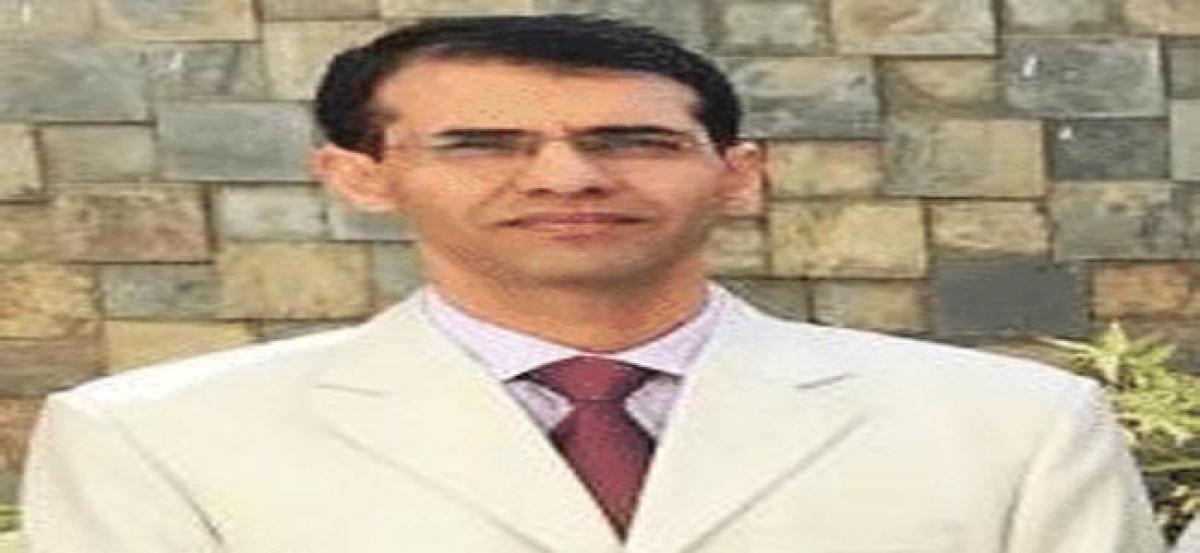Live
- Apple’s $100 Million Bid to Reverse iPhone 16 Ban in Indonesia
- 'When BCCI want things to happen, they get their way': Finch on IPL auction dates
- Revolutionizing Customer Service: Enhancing Customer Experience through OneConnect Project and SAP Service Cloud
- Delhi govt to implement work from home for 50 pc govt staff amid severe air pollution
- Annual addition to green energy capacity likely to surpass 35 GW: Report
- Seeking to complete 1st nuclear power plant as scheduled: Egyptian PM Madbouly
- Priyanka Chopra shares heartwarming moment of Malti enjoying Autumn
- "We play with passion and pride', says captain Durga Rao after India pulls out of Blind T20 World Cup
- Rural India’s women entrepreneurs: Stories of grit and success
- On World Fisheries Day, new schemes to be launched to push growth
Just In
Tobacco killing Over 7 million every year: Dr Arsheed Hakeem


World has seen many epidemics which have caused huge death and destruction, but tobacco epidemic appears to be the biggest tragedy so far in the history of mankind.
World has seen many epidemics which have caused huge death and destruction, but tobacco epidemic appears to be the biggest tragedy so far in the history of mankind. Delivering the 264th Monthly Health Lecture of the Public Garden Walkers' Association on ‘Tobacco Leads To Cancer - Stop Cancer Before It Starts’ today in Hyderabad, Dr Arsheed H Hakeem, Senior Consultant Head and Neck Oncology Surgeon, Apollo Cancer Hospitals, Jubilee Hills; said, tobacco is a significant public health hazard that human race is facing, killing almost seven million people a year. Out of the seven million people, six million are those who are directly consuming tobacco in one form or the other and rest one million die due to second hand exposure to the toxic smoke.
This makes tobacco consumption a leading cause of death which can be otherwise prevented if people restrain from using it. Tobacco contains more than 4000 chemicals, out of which 250 have harmful effects on body and more than 40 are known to cause cancer.
It is estimated that at one point in time there are one billion tobacco smokers world wide and 80 per cent of them are from low socioeconomic countries like India .Hence the burden of tobacco related illness, impoverishment and death is highest in our country. These people die prematurely and deprive their family of income as they are often sole breadwinners. The increasing cost of healthcare cannot be afforded by them and are unable to undergo standard management.
In India problem starts in the childhood itself, due to poverty. Children from poor households are employed in tobacco farming to support family and there they become vulnerable to ‘green tobacco sickness,’ caused by nicotine absorbed through skin. Both adults and children suffer with nausea, vomiting, headache, muscle weakness and dizziness, but these symptoms are more pronounced in children. People who do not smoke may still be at risk of tobacco related illness due to second hand smoke that fills public places like restaurants, offices, or other enclosed spaces.
Infants exposed to the second hand smoke may have sudden death. Woman who smoke have low birth weight babies. It is estimated that second hand smoke causes more than 6,00,000 premature deaths in a year. In India we lack both good monitoring tracks and strict national policies to prevent such exploitation of children. Neither there are efficient youth and adult survey and screening programmes which could be conducted periodically and would have given exact picture of the burden of such man made diseases.
Exposure to smoke directly or second hand causes serious cardiovascular and respiratory illnesses, the most common being coronary artery blockade and lung cancer. Cancers of the mouth and voice box have been directly related to tobacco use either in chewing form or smoking. Scientific studies have proved it beyond doubt that tobacco causes lung diseases, heart diseases and stroke. It also causes cancers of the mouth, voice box, lung, food pipe, and urinary bladder.
As far as treatment of the cancer is concerned it is mostly available in major cities in India and people have to travel long distances to get standard treatment. They usually end up spending a lot of money which has direct bearing on their socioeconomic status. Lot of people not affording treatment need to beg or borrow to get them at least diagnosed. Another issue particularly in developing countries is delay in the presentation as 70 per cent of the cases present in advanced stage. In advanced stage not only does the treatment cost go up as we have to use many modalities to get the cancer under control, but the results are poor and most of the patients succumb to the disease.

© 2024 Hyderabad Media House Limited/The Hans India. All rights reserved. Powered by hocalwire.com






